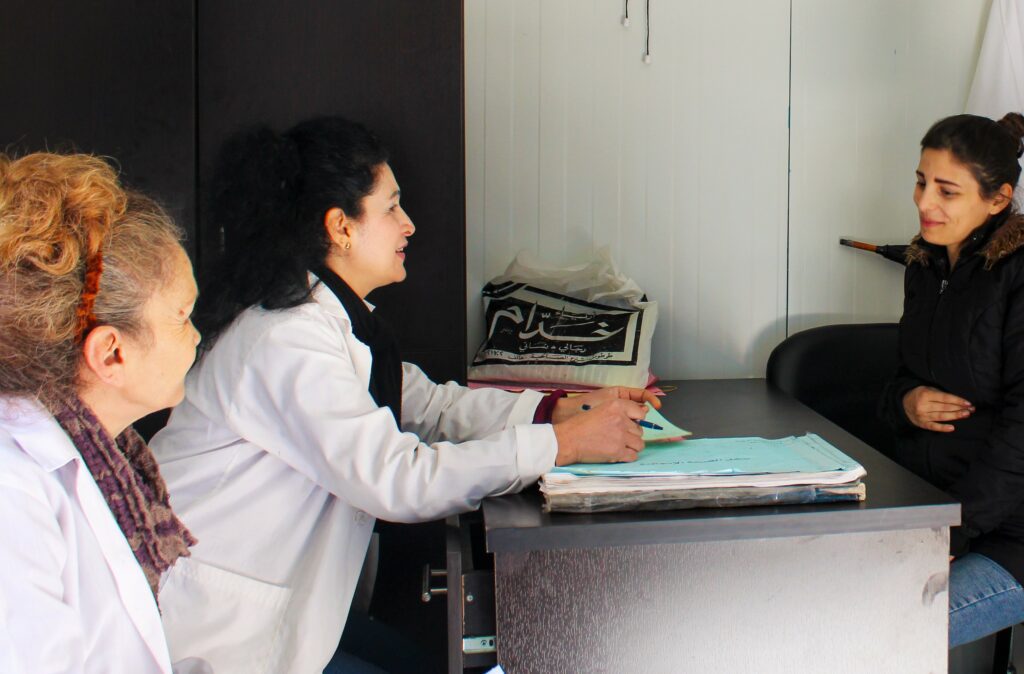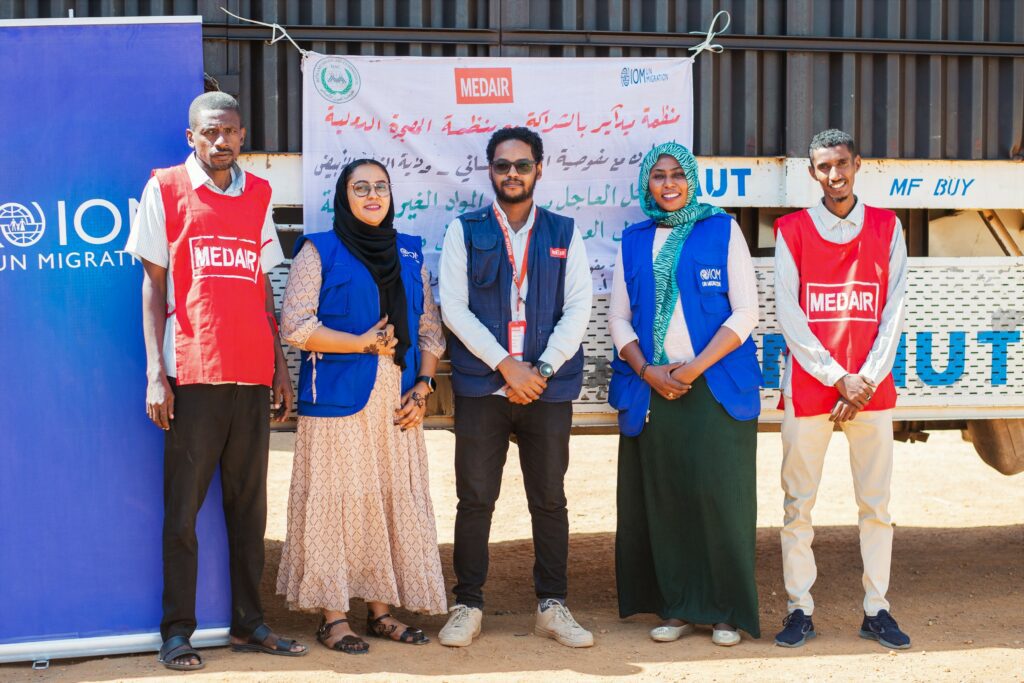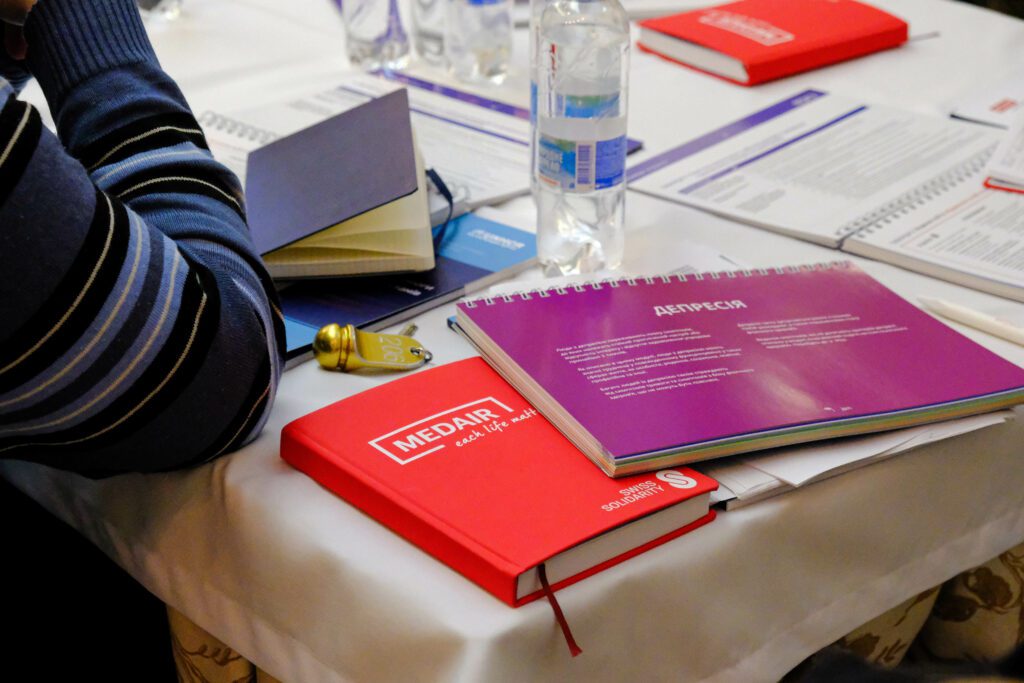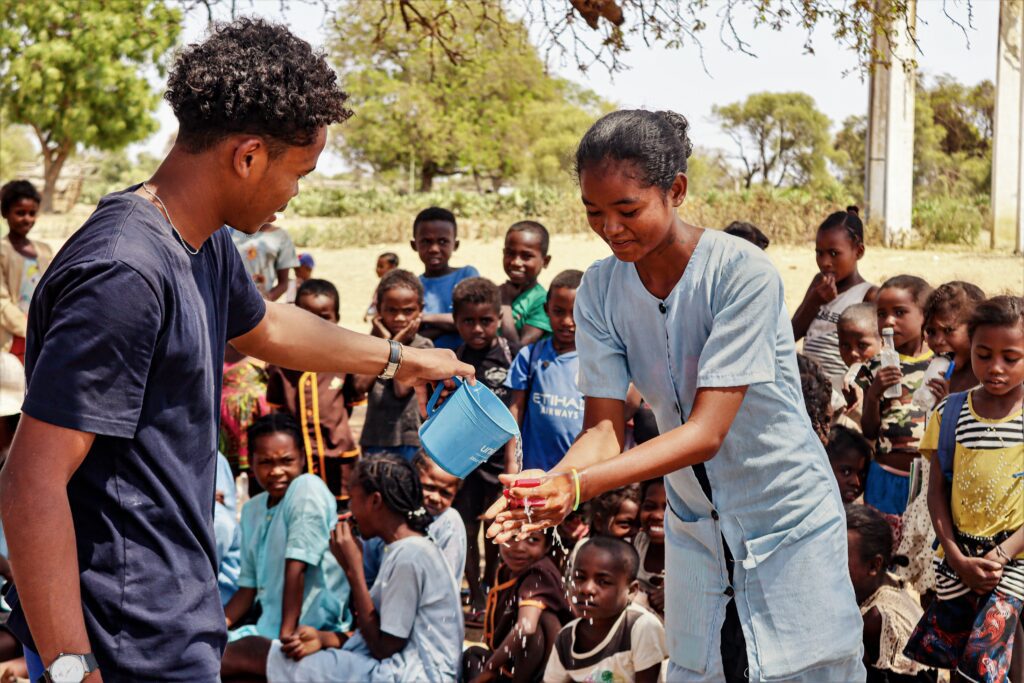Caring for Women and Children in Madagascar
2'
A mother and her three-year-old son stand in front of their home in the remote region of Maroantsetra in northeast Madagascar.
For most of us, daily chores like cleaning the dishes or washing the laundry require almost no effort other than popping them into the washing machine. For Lisy, however, who lives in the remote region of Maroantsetra in northeast Madagascar, these chores are very challenging. Each day, she has to walk several hundred metres from her house to the river at the edge of the village to wash her dirty dishes and laundry and to collect water to use at home.
The toughest part is the walk back. Not only does she have to carry her clean dishes and heavy wet laundry on her hip all the way home, she also has to balance a heavy bucket full of water on her head. Sometimes, when the load is too heavy, one of her young children helps her.
For many women in the remote region of Maroantsetra in northeast Madagascar, their closest water source is unsafe to drink.
Lisy lives in a remote region where roads and bridges are practically non-existent and the dirt tracks become impassable as soon as the heavy cyclone rains hit. Though this region is hard to reach, this is where Medair’s team, the only NGO in the area, is working diligently to bring safe drinking water to more communities.
Unfortunately, fetching water every day is not the only challenge Lisy faces. The water she collects from the river can be unsafe to drink. That means that Lisy and her children constantly worry about falling ill. In fact, a couple of weeks ago, Lisy had to walk several miles from her village to the nearest health centre with her four-year-old daughter, who had a very high fever.
Luckily, Lisy, and many women and mothers just like her in her community, will soon have better access to close-by safe drinking water. With your help, Medair has installed more than 250 hand-pumped water points in the last two years in the hard-to-reach region, giving safe drinking-water access to more than 32,000 people.
Few things are more important for protecting lives than providing safe drinking water.
Safe drinking water closer to home can change a woman’s life drastically. In a culture where women carry most of the responsibility for household tasks and child care, this can result in more time and energy to spend with the children and even earn an income.
Now that’s something to raise a glass to!
Learn more about our work in Madagascar bringing safe drinking water to remote communities.
CHECK OUR LATEST STORIES
Featured StoriesStoriesSyriaHealth and Nutrition
A new life for a clinic in Syria
"The clinic is ready!" The news was music to Dr Eyad's,(the director of Tal Salhab clinic), ears. Medair had just completed the rehabilitation of Tal Salhab's only primary health centre, providing it with much-needed medical equipment – offering a lifeline to over...
StoriesSudanWater, Sanitation and Hygiene (WASH)
The Sudan crisis: how Medair is stepping in
Sudan crisis: how Medair is stepping in Twelve months into the armed conflict in Sudan, it has become the largest displacement crisis in the world. To date, 8.4 million people have been forced to flee their homes, and the number is growing every day. Families have...
StoriesUkraineHealth and NutritionMental Health
The Need for mental health support in Ukraine
“I really enjoyed the organization of these trainings. I’ve already gained a lot of interesting knowledge, which, it seems, I was already familiar with, but had never thought about it deeply. Learning new things, I understand how I can apply them in my work to...
StoriesMadagascarWater, Sanitation and Hygiene (WASH)
Medair’s innovative response to drought
In southern Madagascar, Medair aims to play a key role in improving access to water, sanitation, and hygiene for vulnerable communities affected by drought and 'kere' (famine). Normally, people living in remote villages in southern Madagascar need to walk 10 to 40...
StoriesUkraineShelter and Infrastructure
Surviving Adversity
“Sometime around 6 a.m., my nephew called me and said, ‘Are you still sleeping? THE conflict has started.’ I shouted at my children to turn on the television to watch the news. I never thought I would experience something like this at my age. It was a terrifying...
StoriesJordanHealth and Nutrition
Health Improvement Journey
"We lost everything, our home and farm, therefore I left everything behind me. I carry hope to have a better place for me and for my family," Fozeh said, her voice heavy with the weight of displacement but her spirit resilient with the promise of a brighter future....
StoriesMadagascarWater, Sanitation and Hygiene (WASH)Women & Children
Fetching water, a burden for women
In the struggle of finding clean water, women bear the heaviest load "In addition to my duties as a single mother, I have to fetch water three hours away every day," shares Farasoa, a 38-year-old divorcee raising seven children in the Fokontany of Ambory...
StoriesYemenHealth and Nutrition
From a shack to a health unit
Following nearly a decade of conflict in Yemen, the country has experienced a partial collapse of an already fragile public infrastructure, leaving approximately 66 percent of the population in dire need of humanitarian assistance. Yemen’s healthcare system has...





